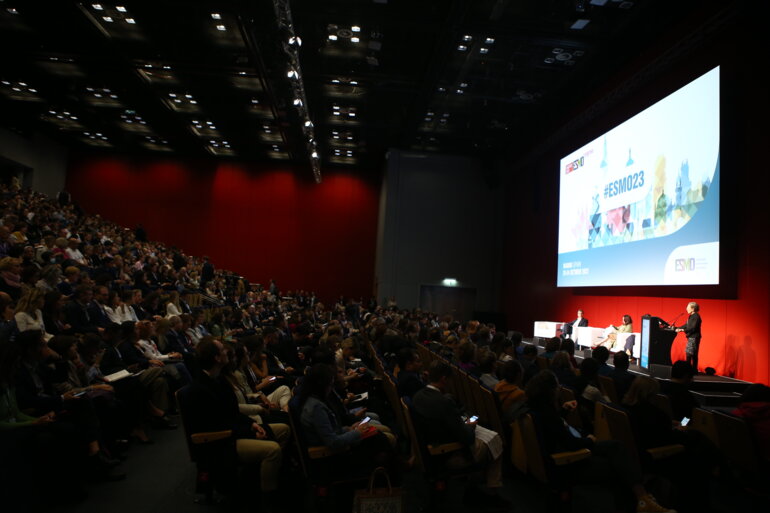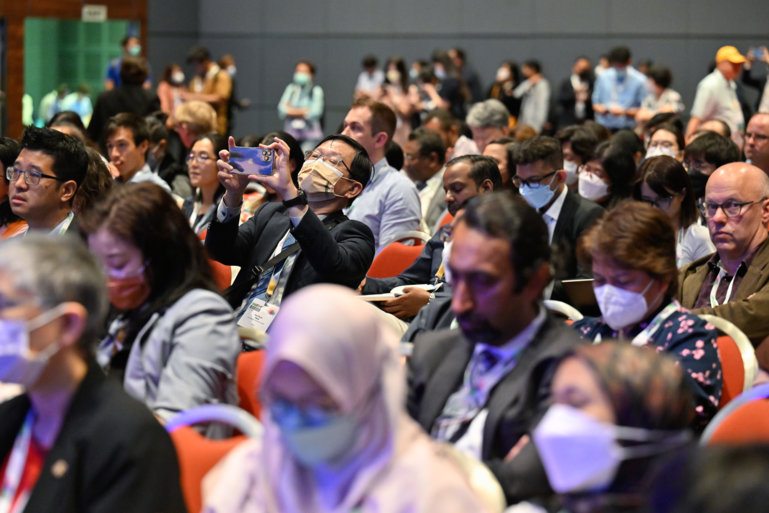Integrated, comprehensive databases may help to close the gap in cancer care between high- and low-/lower-middle-income countries
The huge repository of information contained in national cancer registries is vital to understand the patterns of cancer incidence and management across countries and the effects of cancer prevention programmes. However, the status of cancer registries varies widely throughout Asia.
High-income countries (HIC), such as Japan, Korea and Singapore, have very well-developed cancer registries covering the entire population. However, the situation is much less favourable in low-income countries (LIC)/lower-middle-income countries (LMIC) in South and South-East Asia. There is now a very clear and substantial gap in registry provision between HIC and LMIC/LIC in Asia, one that is considerably wider than the acknowledged disparity between eastern and western European countries. Despite the efforts of national cancer centres in various countries and the WHO's International Agency for Research on Cancer (IARC), progress remains frustratingly slow.
In Asian LIC/LMIC, cancer registries are really only the tip of the data-challenge iceberg. One of the main problems in many of these countries is how to obtain reliable cancer statistics. Most do not have the necessary systems in place to count patient deaths due to cancer. There is often no mandate for a medical certificate stating cause of death for individuals dying outside of hospital and, because of widespread poor access to hospital care, this occurs very often. The problem is exacerbated by a lack of experienced pathologists able to confirm a diagnosis of cancer: in some cases, in fact, patients dying at home may not even be aware that they have cancer. So we really need to widen our focus to look beyond cancer registries and to find ways to cooperate with the many stakeholders involved – including health ministries and health insurance systems – to develop effective data collection and management systems that can lead towards the construction of cancer registries. To sum up, there is no mechanism to register residents, the population is unknown, the health insurance system is inadequate, and even if individuals go to the hospital, they receive only minimal treatment and are not diagnosed with cancer. Therefore, we need to improve these things one by one at the same time.
The Evaluating Medical Oncology Outcomes (EMOO) in Asia study – an initiative developed between ESMO and the IARC in collaboration with partner institutions in Indonesia, Malaysia, Singapore and Thailand – established a clinical annotated population-based lung cancer registry, with the aim of examining incidence, diagnostic and clinical information and outcomes for patients diagnosed between 2017 and 2019. Study presentations at the ESMO Asia Congress 2022 (Singapore, 2–4 December) report that integrating clinical data within population-based cancer registries was feasible (Abstract 405P), that molecular testing rates were heterogenous and that survival outcomes varied depending on targeted therapy status and access to treatment (Abstract 393MO).
The goal for data acquisition and management would be for all countries in Asia to have access to a system similar to the Korea Cancer Big Data Platform, which integrates electronic medical records, genomic data, tumour biopsy specimen data and cancer registration statistics from national cancer control initiative databases, using clinical data from the National Cancer Center (Int J Environ Res Public Health. 2019;16:2290). This type of comprehensive database can be used for epidemiological and clinical studies, as well as for genetic and basic research. The integrated nature of the platform allows potential associations between different aspects, for example genomics and lifestyle, to be explored more easily than is possible even with existing national registries. Not only could Big Data accelerate the progress of research, it could also do it in a cost-effective way. However, the extent of the information available on individuals has raised concerns about security of such systems and this is something that still needs to be addressed satisfactorily.
The existence of an established national cancer registry may be regarded as a challenge to the development of a comprehensive, integrated system, because of the requirement for negotiations with politicians and the public about changes to the system and because of potential disputes regarding data ownership of the component parts. In this respect, Asian LMIC/LIC without registries are at an advantage, as the fusion databases in these countries can be developed from scratch. This approach is currently being pursued in Vietnam, where we are seeing the rapid development of a cancer registry that incorporates many different aspects into the one database. The rate of development of these de novo systems may mean that, somewhat counterintuitively, these Asian LIC/LMIC countries could find themselves on a par with, and possibly even ahead of, some Asian HIC in the not too distant future.
Don't miss:
GLOCAL: Global challenges with LOCAL solutions to oncology workforce, data protection and cancer registry development in APAC
Educational session 02.12.2022, h. 14:30 – 16:00, Room 324&325. Also watch the session on the Congress virtual platform.
Abstracts discussed:
Stahel RA, et al. Evaluating Medical Oncology Outcomes (EMOO) in Asia Study: Molecular testing, treatment patterns and outcome of patients with stage IV non-squamous non-small cell lung cancer. ESMO Asia Congress 2022, Abstract 393MO
Mini Oral session: Thoracic cancers 03.12.2022, h. 09:00 – 10:30, Hall 406. Also watch the session on the Congress virtual platform.
Soo RA, et al. Evaluating Medical Oncology Outcomes (EMOO) in Asia Study: Diagnosis, staging, treatment patterns and outcome of patients with lung cancer registered 2017-2019. ESMO Asia Congress 2022, Abstract 405P
Poster viewing 03.12.2022, h. 18:00 – 19:00, Exhibition / Poster Area. Read the e-Poster on the Congress virtual platform.






